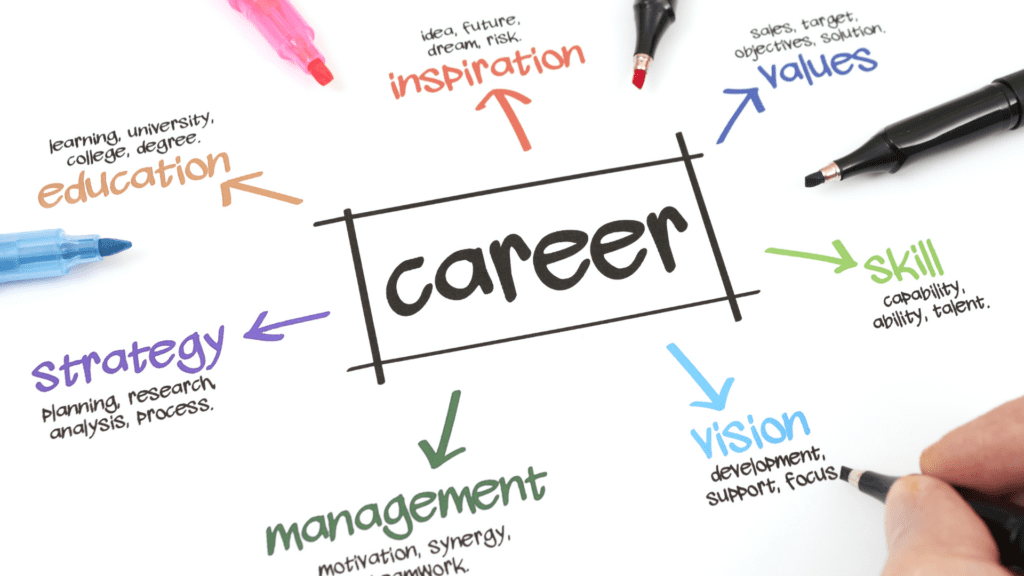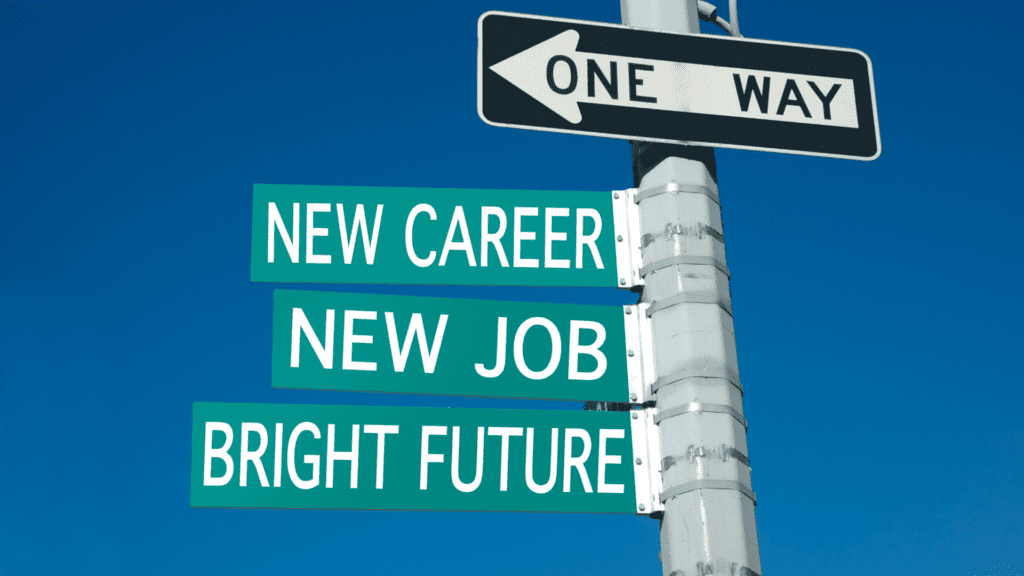Choosing the perfect career is a pivotal decision that profoundly influences your financial success, personal fulfillment, and overall well-being. While many settle for jobs that merely pay the bills, aligning your profession with your intrinsic strengths and passions can lead to a more satisfying and energized life. One critical factor that often gets overlooked is the need for a career that supports your mental health, cognitive strengths, and lifestyle—making it important to explore the best careers for work-life balance.
The Importance of Work Life Balance for Long-Term Career Fulfillment
Psychological research consistently shows that work-life balance is a key driver of job satisfaction and long-term success. A career that allows for personal time and family commitments while still providing opportunities for growth and accomplishment is essential for maintaining mental health and preventing burnout. The best careers for work life balance are those that align with your natural inclinations and provide a structure that supports emotional resilience, cognitive performance, and overall happiness.
How Work Life Balance Impacts Cognitive Performance and Career Longevity
Many professionals chase high salaries and prestige without considering the neurological toll of their work. Studies in cognitive neuroscience reveal that prolonged stress and overworking impair the brain’s executive function, leading to burnout, decreased focus, and even memory issues. This is why the most conducive careers for work-life balance are those that allow for adequate recovery time, promoting neural plasticity, problem-solving skills, and sustained motivation. A well-balanced career ensures that your prefrontal cortex, which governs logical reasoning and decision-making, remains optimized rather than depleted.

Understanding the Science Behind Career Satisfaction
Research indicates that self-awareness is crucial in identifying a career that resonates with your core values and natural inclinations. By understanding your unique psychological makeup, you can pinpoint professions that not only match your skills but also provide an environment conducive to your personal growth and long-term career satisfaction. In fact, the best careers for work life balance are often those that align with both your intrinsic motivations and your brain’s natural wiring.
Key Psychological and Cognitive Factors in Career Success
- Intrinsic Motivation: People who find careers that align with their intrinsic interests experience greater engagement, productivity, and satisfaction.
- Cognitive Strengths: Some individuals thrive in analytical, structured environments, while others excel in creative, fluid settings. Finding a career that aligns with your cognitive strengths is a cornerstone of choosing the best careers for work life balance.
- Emotional Regulation: Careers that demand high emotional resilience can be fulfilling but may also lead to burnout if not balanced with proper support and self-care.
The Science Behind Burnout and Job Satisfaction
Neuroscientific research shows that burnout occurs when the brain is in a chronic state of heightened cortisol production, which weakens emotional regulation and diminishes job satisfaction. Careers with rigid structures and unrealistic demands can lead to chronic stress, making it difficult to maintain enthusiasm and engagement. The best careers for work life balance prioritize psychological safety, flexibility, and autonomy, allowing individuals to maintain emotional well-being while excelling professionally.
Strategies to Identify Your Optimal Career Path
Self-Assessment and Reflection
- Leverage personality assessments to identify your strengths, work styles, and optimal work environments.
- Reflect on past experiences to determine what aspects of previous roles provided the most satisfaction and fulfillment.
- Ask yourself whether your current or future career aligns with your vision of the best careers for work life balance.
Leverage Neuroscientific Insights
- Understand how your brain processes information and makes decisions to identify roles that best suit your cognitive profile.
- For example, if you thrive in structured, logic-driven environments, careers in law, engineering, or finance may be a good fit. If you prefer creativity and fluidity, consider careers in design, entrepreneurship, or strategy.
- Look for careers that provide balance and opportunities to recharge, as these align with the principles of the best careers for work life balance.
Seek Professional Guidance
- Career coaching and mentorship can provide personalized insights into the career paths that align with your intrinsic motivations and long-term aspirations.
- Working with a professional can help you identify the best careers for work life balance based on your unique strengths, values, and lifestyle goals.

Leveraging Proprietary Career Assessments for Personalized Career Alignment
One of the most overlooked aspects of career decision-making is the deep psychological and cognitive factors that influence long-term job satisfaction. While many career assessments provide generalized guidance, they often fail to consider the intricate neuroscientific and psychological traits that truly determine career compatibility.
This is why I use proprietary career assessments that I personally curate after spending time understanding my clients on a deep neurological and psychological level. Rather than relying on a one-size-fits-all approach, I take into account cognitive strengths, emotional processing styles, motivational drivers, and personality frameworks to tailor an assessment that truly reflects who you are.
Key Areas Covered in My Career Assessments
- Cognitive Strengths and Decision-Making: Assessing how you process information and solve problems can help identify roles that align with your natural abilities, leading to greater job satisfaction and better work life balance.
- Emotional Regulation: Identifying careers that align with your emotional resilience can help you avoid burnout and create a sustainable work life dynamic.
- Intrinsic Motivation and Work Styles: Understanding what drives you helps ensure that your career provides the necessary motivation for sustained engagement and success.

The Role of Workplace Environment in Career Satisfaction
The environment in which you work significantly impacts your productivity, motivation, and overall job satisfaction. Neuroscience research has shown that our brain’s ability to focus, innovate, and regulate stress is directly influenced by the workplace setting, leadership style, and company culture. Understanding these factors can help you select a work environment that supports your mental health and aligns with the best careers for work life balance.
The Brain’s Response to Workplace Stress
Chronic stress in a toxic or unsupportive work environment can trigger the amygdala, the brain’s emotional center, leading to heightened anxiety and reduced cognitive function. Conversely, workplaces that promote psychological safety activate the prefrontal cortex, responsible for higher-order thinking, decision-making, and emotional regulation.
How Physical Space Affects Cognitive Performance
Neuroscience studies reveal that our physical surroundings shape how our brain processes information. Open, well-lit spaces with natural light increase serotonin levels, enhancing mood and reducing mental fatigue. Conversely, dark, cluttered, or chaotic environments can overstimulate the brain, leading to stress and decreased productivity.
Top Characteristics of the Best Careers for Work Life Balance
- Autonomy: Careers that provide a degree of control over your schedule and workload promote better work life balance and long-term job satisfaction.
- Flexible Hours: Jobs with flexible schedules can support family commitments, personal interests, and opportunities for self-care.
- Growth Opportunities: The ability to learn, grow, and take on new challenges keeps your brain engaged and prevents stagnation.
- Positive Social Environment: Strong workplace relationships promote a sense of belonging and can enhance overall happiness and performance.
By applying these neuroscience-backed insights, you can evaluate potential workplaces beyond just salary and benefits. Instead, prioritize environments that support cognitive health, foster motivation, and align with your intrinsic needs for autonomy, learning, and meaningful social connections. The best careers for work life balance are those that not only match your skills and values but also provide the support needed for long-term success.
For further insight, read: Feeling Stuck in Your Career? Breakthrough Strategies in Neuroscience













